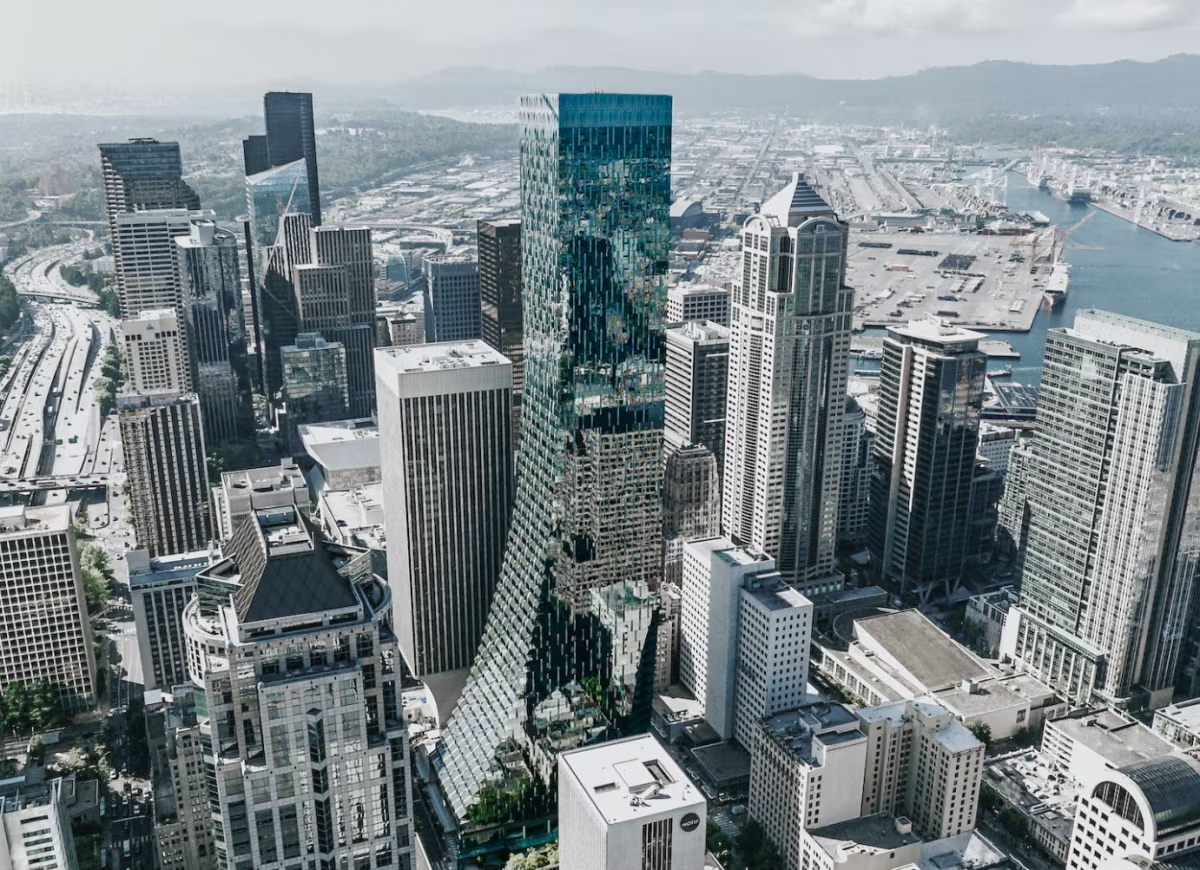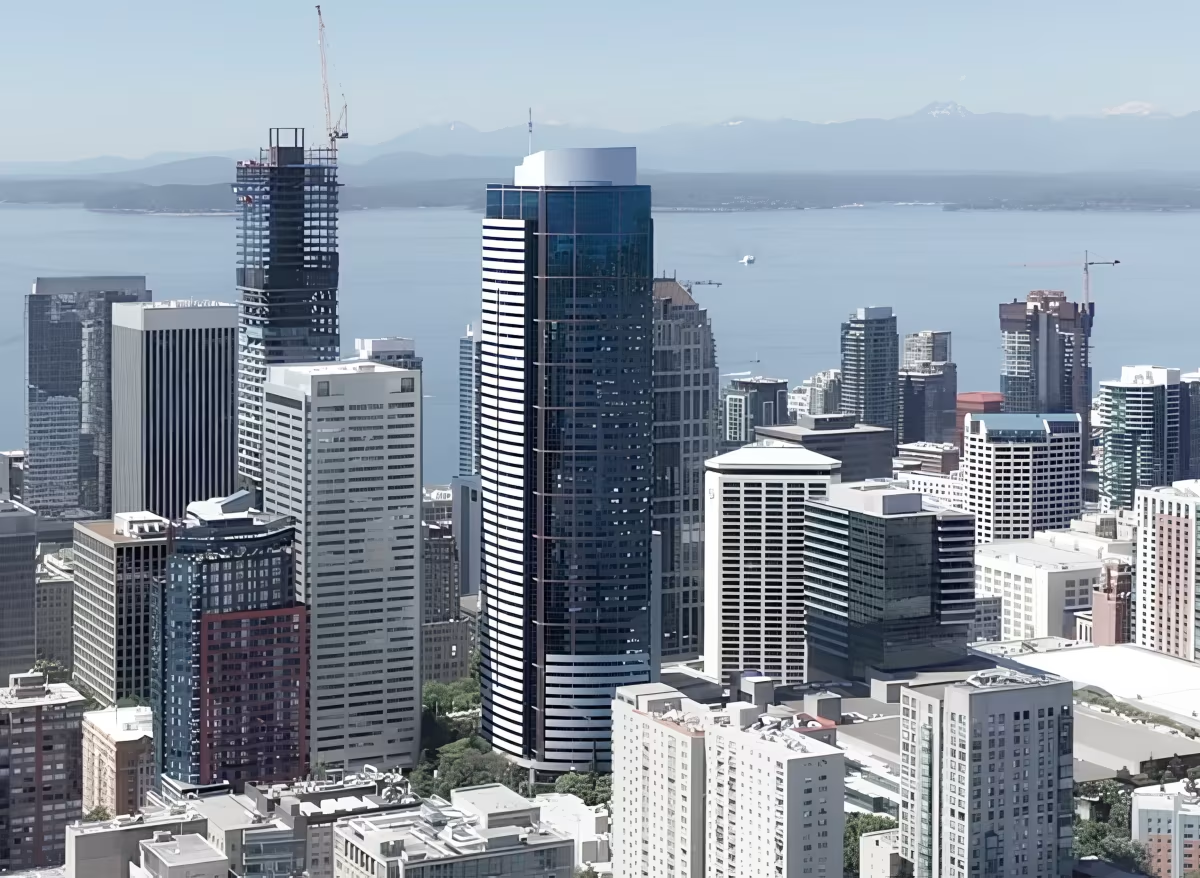Rainier Square Tower vs Two Union Square


Comparing the Rainier Square Tower and the Two Union Square is particularly interesting because they share the same skyline in Seattle, WA, and were both designed by NBBJ. However, they were completed more than 31 years apart.
This offers a unique perspective on how the architect's style and the city's architecture evolved over time.
Height & Size
The Rainier Square Tower is clearly the larger tower of the two, both in terms of height and number of floors. It rises to 846ft (258m) with 58 floors above ground, while the Two Union Square reaches 741ft (226m) with 56 floors above ground.
Rainier Square Tower also offers more total built-up area, a total fo 1,099,998,935 sqf (102,193,344m2), which is about 1,098,833,496 sqf (102,085,071m2) more than what the Two Union Square offers.
Of course, each project may have faced different briefs or regulatory constraints, which we don't really know about and could also explain the outcome.
Architectural Style
The Rainier Square Tower was designed in the Contemporary style, while the Two Union Square reflects the principles of Modern.
The Two Union Square represents a late expression of the Modern, a style already in decline in 1989 when it was completed. By contrast, the Rainier Square Tower followed the then mainstream Contemporary, embodying the dominant architectural direction of its time.
With 31 years between them, the comparison also reflects how quickly architectural priorities can shift from one dominant language to another.
Uses
The Rainier Square Tower follows a mixed-use model, combining commercial, residential and retail. In contrast, the Two Union Square has remained primarily commercial.
The Rainier Square Tower offers 189 residential units.
Both towers provide significant parking capacity, with Rainier Square Tower offering 1000 spaces and the Two Union Square offering 1100.
Structure & Facade
Both the Rainier Square Tower and the Two Union Square rely on a Framed Tube In Tube structural system.
A tube-in-tube system combines a reinforced central core with a perimeter of columns connected by floor slabs. This arrangement creates a stiff structure that resists both vertical and lateral forces efficiently.
They also employ the same type of facade, a Curtain Wall facade.
A curtain wall is a non-load-bearing facade hung from the structural frame. It is anchored to floor slabs and transfers only its own weight and wind loads, allowing for sleek, glassy exteriors.
| Rainier Square Tower | Two Union Square | |
|---|---|---|
| NBBJ | Architect | NBBJ |
| 2014 | Design Ended | 1984 |
| 2017 | Construction Started | 1987 |
| 2020 | Year Completed | 1989 |
| Contemporary | Architectural Style | Modern |
| Mixed | Current Use | Commercial |
| 58 | Floors Above Ground | 56 |
| 7 | Floors Below Ground | 4 |
| 258 m | Height (m) | 226 m |
| 102193344 | Built-up Area (m²) | 108273 |
| Framed Tube In Tube | Structure Type | Framed Tube In Tube |
| A Concrete Core And Steel | Vertical Structure Material | Steel And Reinforced Concrete |
| Poured Concrete Over Metal Decking | Horizontal Structure Material | Reinforced Concrete |
| No | Facade Structural? | No |
| Aluminum, Glass | Main Facade Material | Granite, Glass |
| Lease Crutcher Lewis | Main Contractor | Turner Construction Company |
| Magnusson Klemencic Associates | Structural Engineer | Magnusson Klemencic Associates |
| WA | State | WA |
| Seattle | City | Seattle |
| 401 Union St | Address | 601 Union Street |